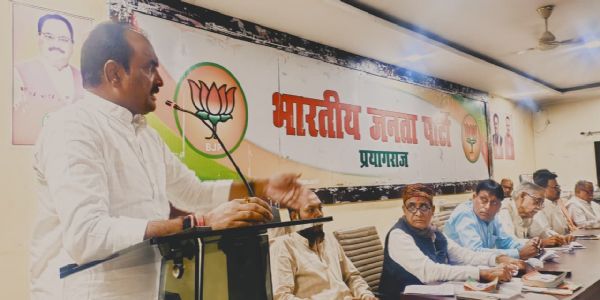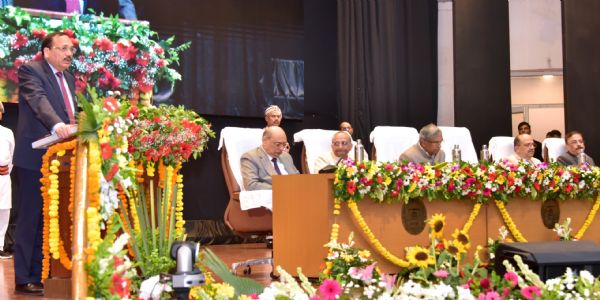
Bhubaneswar, 2 November (H.S.) : Bharat’s youth have immense potential, and if they dedicate themselves to the nation with patriotism and selflessness, India can once again emerge as a Vishwaguru (global leader), said Dr. Basant Pati, Sah-Sampark Pramukh of the Rashtriya Swayamsevak Sangh (RSS), Odisha (Purv).
He was addressing the valedictory session of a day-long Yuva Sammelan organised by the Bhubaneswar Mahanagar unit of the RSS at the Regional Institute of Education, Acharya Vihar, on Sunday. More than 500 young participants from across the city attended the conference.
Dr. Pati underscored the crucial role of youth in shaping India’s future. “If the younger generation works for nation-building with a spirit of selflessness, Bharat will emerge as a developed nation by 2047,” he said, urging them to internalise patriotism and social responsibility. He added that the current national atmosphere is conducive for such transformation.
Reflecting on the century-long journey of the RSS, Dr. Pati said the organisation has been steadfast in its mission to unite and strengthen Hindu society. He recalled that RSS founder Dr. Keshav Baliram Hedgewar had identified the lack of unity and awareness of self-identity (Swabodh) as key reasons for India’s past subjugation. “Without awakening this self-awareness and collective consciousness, the nation cannot attain its true glory,” he noted.
Speaking about the RSS’s centenary initiative—Panch Parivartan (Five Transformations)—Dr. Pati elaborated on its five pillars: Swabodh (Self-awareness), Nagarik Kartavya (Civic Duty), Paryavaran Suraksha (Environmental Protection), Samajik Samarasata (Social Harmony), and Kutumb Prabodhan (Family Awareness). He said these values, if practiced sincerely, can lead to significant social transformation.
Dr. Pati also stressed the need to cultivate Swabodh in national institutions. Citing an example, he said, “Even after 75 years of independence, our judiciary continues the British-era practice of summer vacations—a legacy of colonial times when British judges couldn’t tolerate India’s climate. Such customs persist because of a lack of self-awareness.” He called for awakening this inner sense of identity to build a truly self-reliant nation.
Emphasising civic discipline, social harmony, and family values, Dr. Pati said these are essential foundations of a prosperous and ethical Bharat. “By nurturing environmental consciousness, we protect creation itself; by preserving family values, we secure our cultural roots,” he concluded.
---------------
Hindusthan Samachar / Monalisa Panda






